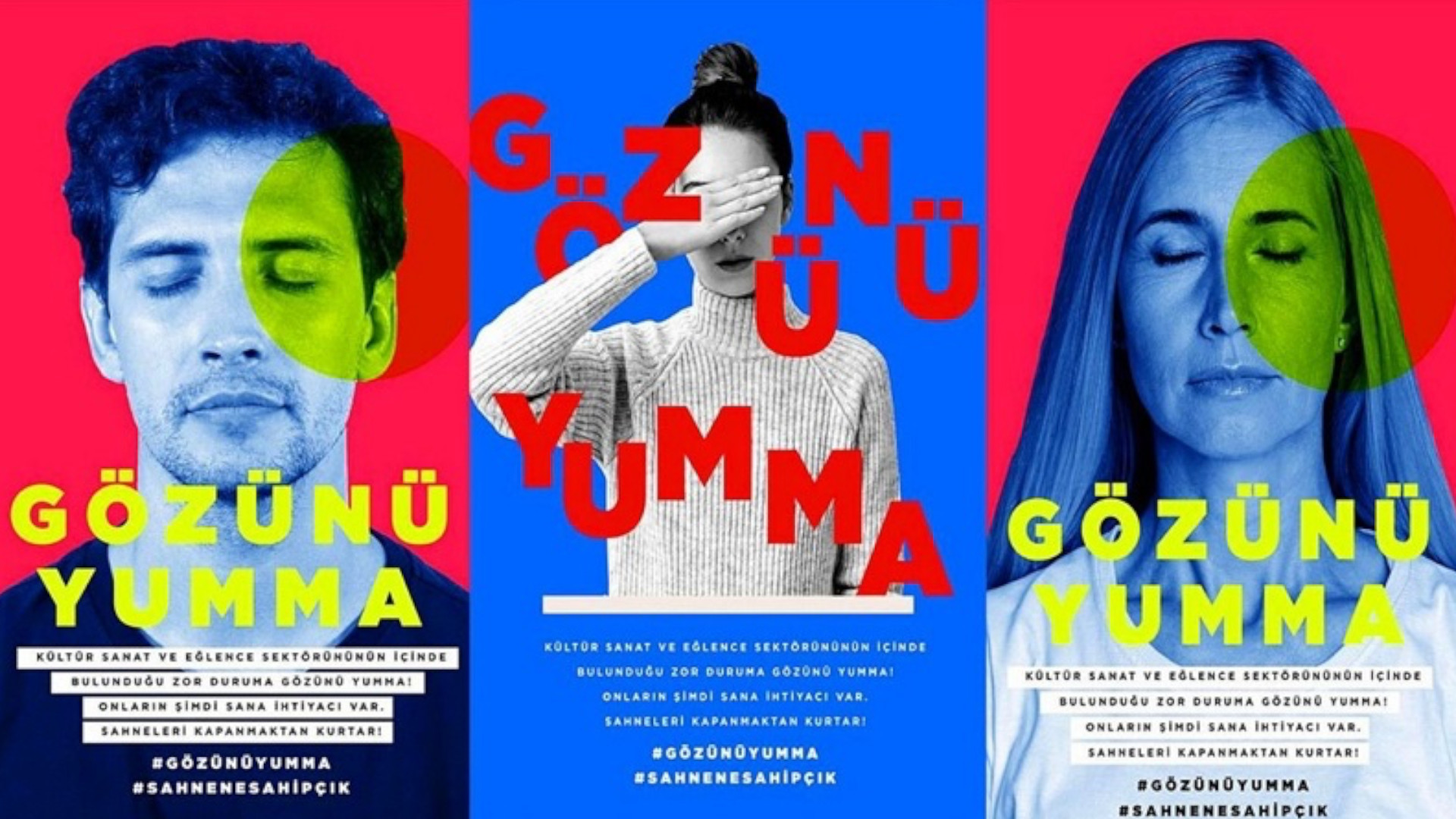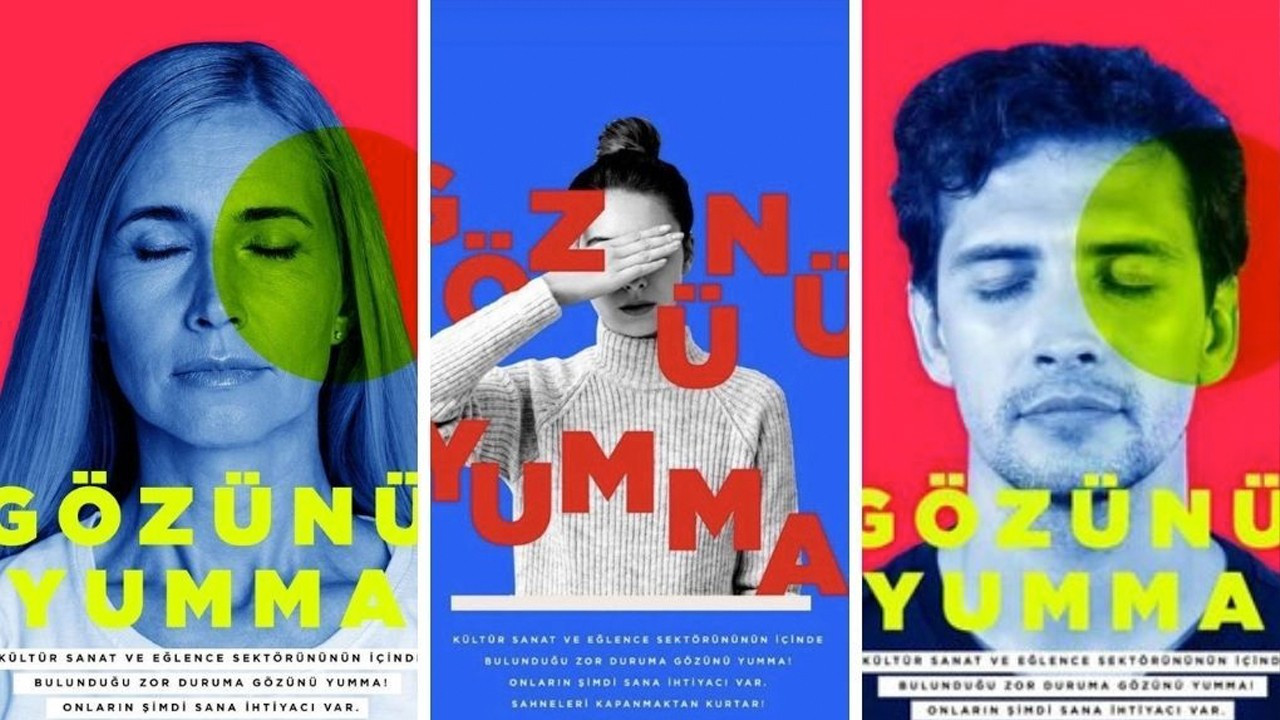Turkish gov’t using pandemic to silence artistic defiance, say musicians
Turkish musicians say that the defiant nature of art is the reason for the government’s exclusion of the music industry from its Covid-19 ‘normalization plan.’ Within such an atmosphere of exclusion, they have emphasized the need for strong unionization of all workers within art and culture industries.
Didem Atakan / Duvar English
Turkish musicians have been protesting the government’s refusal to acknowledge their existence as its ‘gradual normalization plan,’ announced earlier this month, has extended the ban on live music events – at least until the end of June. Post-Ankara’s decision, musicians took to social media to express their frustration, asking whether the Covid-19 virus spreads only after 10 p.m. and only inside concert and entertainment venues.
Many labeled the ruling Justice and Development Party (AKP)’s decision ‘ideological’ and ‘political,’ saying they have been abandoned to death. In a collective call for support shared on social media, musicians urged the public “not to close your eyes” and “to protect your stages.”
According to Özcan Şenver, a former member of the Turkish folk band Grup Yorum, the government’s exclusion of musicians from its policies is deliberate.
“There is a Confucius saying which goes, ‘If you want to keep a nation imprisoned, let the music get rotten.’ Such a stance against art and artists is political because art has always had a defiant side and an urge to reach people,” Şenver told Duvar English.
“Among other art forms, I think music is of greater importance. Music is a more fast, direct, attention-grabbing, and triggering art form. As a result, places that were silenced and shut down in the early stages, are those which house musicians, art, and artists,” he said.
Guitarist Ergin Kandemir, a member of the Turkish rock band Teneke Trampet, also believes that the current leadership is exploiting art for political purposes.
“The negligence of the music industry is not something that emerged with the pandemic. It is definitely a political choice. In the past, whenever an event, such as a bombing, war, or political crisis, happened, concerts are the first to be canceled, whereas the AKP continues with its mass congresses. They want to wear down the musicians,” Kandemir told Duvar English.
After covering its ears to the cries of musicians for months during the Covid-19 pandemic, the government finally agreed to give financial support in December 2020, but only via a payment of 1,000 liras a month for five months. In a country where the poverty line is 2,830 liras a month, this amount without a doubt fell short of expectations.
On top of that, only 30,744 musicians have been eligible to receive this financial support, among an estimated 1 million music industry workers – including technicians, roadies, security personnel, waiters, and others.
In the absence of a support mechanism from the government, musicians are developing their own projects to help their colleagues who have the most urgent needs.
The Anatolian Music Cultures Association, a non-profit organization dedicated to promoting music emerging from Turkey, is organizing a fundraising initiative on June 19, in which 47 groups and musicians will play one song each online. The event will be live-streamed on the association’s YouTube account and people can purchase symbolic tickets via Biletix.com. The revenue from the event will go entirely to those musicians in dire financial need.
Separately, celebrated Turkish rock music singer Haluk Levent announced that his voluntary group Ahbap will cover musicians’ unpaid bills, while several veteran musicians such as Musa Eroğlu, Melek Mosso, and Ahmet Güvenç have put their instruments up for sale in order to raise funds.
Such attempts are invaluable in an atmosphere where more than 100 musicians are said to have committed suicide since the pandemic hit Turkey last year. However, industry representatives emphasize the need for a long-term solution.
The lack of strong unionization among musicians has come to the foreground during the pandemic. Only about 24,000 musicians out of tens of thousands are members of professional associations or unions, a fact which essentially allows the government free reign in terms of overlooking the industry.
“Support cannot come from a political structure that looks at cultural life through the lens of its ideological preferences. At this point, there is a need for an organized structure that encapsulates all areas of art and culture,” Anatolian Music Cultures Association General Secretary Mahmut Ölmez told Duvar English.
“Labor associations and unions that work in the music industry need to strengthen their power of organization. There is also a need for deep-rooted law that protects laborers of culture and art both in normal and extraordinary conditions,” he said.
Last week, a group of music association representatives paid a visit to Ankara to hold talks with Culture Minister Mehmet Nuri Ersoy and Health Minister Fahrettin Koca.
According to a press statement from the Musical Work Owners Group Society (MSG), the music industry demanded that pubs and entertainment venues have the same working hours as cafes and restaurants and that the curfew be applied from midnight onwards, instead of the current 10 p.m.
The government has not yet released a statement as to whether it will consider these demands, but Minister Koca announced on June 8 that musicians are to be prioritized in the vaccination program regardless of their age.
All eyes are now on the upcoming June 21 cabinet meeting with regards to the question of if the government will lift its discriminatory Covid-19 restrictions and address the existence of the music industry.
(Editing by Dorothy Rau)

 They want to kill the musicWorld
They want to kill the musicWorld Turkey's entertainers revolt against lack of state aid in pandemic: Don't turn blind eye!Culture
Turkey's entertainers revolt against lack of state aid in pandemic: Don't turn blind eye!Culture A stolen youth: Eurovision, spring festivals, and concertsWorld
A stolen youth: Eurovision, spring festivals, and concertsWorld